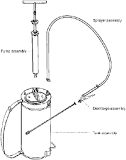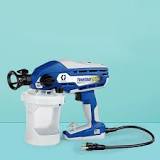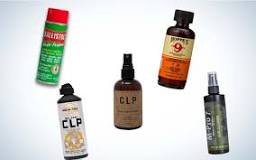When it comes to tackling pesky fleas, exterminators typically use a variety of insecticides and insect growth regulators (IGRs) to effectively eliminate these stubborn pests. The choice of chemicals can depend on the severity of the infestation and the specific areas that need treatment.
Understanding Flea Treatments
Fleas can be a real nuisance, not just for pets but for humans too. Here’s a breakdown of the chemicals commonly used by exterminators:
Insecticides
- Residual Sprays: These are applied to carpets, rugs, and furniture. They kill adult fleas on contact and provide lasting protection against newly emerged fleas.
- Flea Foggers: These are great for covering larger areas. They release a mist that penetrates hidden spots where fleas might be hiding.
- Specific Products: Some popular insecticides include:
- Alpine: Known for its effectiveness against both adult fleas and their eggs.
- Onslaught: A fast-acting solution that targets adult fleas.
- Precor: An IGR that prevents flea larvae from developing into adults, breaking the life cycle.
Insect Growth Regulators (IGRs)
IGRs like Precor play a crucial role in flea control. They don’t kill adult fleas but stop the larvae from maturing, which is essential for breaking the flea cycle. This means that while you might still see some adult fleas initially, they won’t be able to reproduce.
The Extermination Process
Exterminators usually follow a multi-step approach:
- Inspection: They start by checking hotspots like pet bedding, carpets, and cracks in the floor.
- Treatment: After identifying the problem areas, they apply the chosen insecticides and IGRs.
- Follow-Up: Regular check-ins ensure that any remaining fleas are dealt with promptly.
FAQ
What should I do before an exterminator arrives?
It’s best to vacuum your home thoroughly to remove as many fleas, eggs, and larvae as possible. Make sure to wash pet bedding and any fabrics that might harbor fleas.
How long does it take for the treatment to work?
Most chemical treatments start working within hours, but it can take several weeks to fully eradicate all fleas since eggs may still hatch after treatment.
Are these chemicals safe for pets and children?
While many insecticides are safe when used as directed, it’s crucial to keep pets and children away from treated areas until they are dry and safe for re-entry.
Can I treat my home myself?
For small infestations, DIY products can work, but they often lack the potency of professional-grade chemicals. If you have a severe infestation, hiring an exterminator is usually more effective.
In conclusion, dealing with fleas requires a combination of strong insecticides and IGRs to ensure complete eradication. By understanding what chemicals exterminators use and how they work, you can better prepare your home for treatment and enjoy a flea-free environment.







